Reaching Across Borders: Building a More Equitable World Through Higher Education
-
Pranav Chintalapati, Chemical and Biological Engineering, UBC; Nancy Gallini, Academics Without Borders | Economics, UBC; Arash Habibi Lashkari, Information Technology, York University; Peter Keller, Geography, SFU; and Bob Woollard, Family Practice, UBC
Coach House, Green College, UBC and livestreamed
Wednesday, March 19, 5-6:30 pmin the series
Stories from the Front Lines: Universities and Global Citizenship -
The United Nations Sustainable Development Goal 4.3 calls for equal access for all to "affordable and quality technical, vocational and tertiary education, including university” by 2030. At current rates of participation, achieving that goal appears to be remote. In this public event, we ask: What leadership role can we—at post-secondary institutions in Canada—play in helping our partner institutions in low- and middle-income countries (LMICs) provide local quality education that otherwise would not be available to their youth? In recognition of recent budgetary challenges faced by Canadian institutions of higher education, Academics Without Borders (AWB) proposes an effective way to give Canadian institutions a leadership role in this area.
AWB is a Canadian nonprofit, founded in 2007, with a mission to assist LMICs in improving their institutions of higher education across the full range of activities, from expanding and improving existing curricula, degree programs, and institutions, to helping create new ones. AWB fulfills its mission by providing volunteer experts—faculty and staff from AWB’s Network of 35 colleges and universities across Canada—opportunities to work on projects that are proposed, developed, and sustained by post-secondary partners in LMICs. Thus far, AWB has conducted over 200 projects with over 100 partner institutions in nearly 40 countries with over 300 volunteers. This event will present an overview of AWB and feature two recent projects on strengthening engineering research in Uganda and on creating a new liberal arts university in Nepal, presented by AWB volunteers from UBC, SFU, and York.
AWB is grateful to the University of British Columbia for its leadership as Host institution of AWB’s Network, to its fellow Network universities and colleges across Canada, to the extraordinary AWB volunteers for their commitment to global higher education, and to Green College for the opportunity to highlight Academics Without Borders and our collective work.
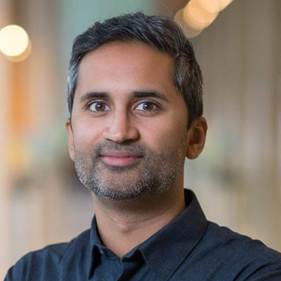 Pranav Chintalapati, PhD, P.Eng., is an Assistant Professor of Teaching in the Chemical and Biological Engineering Department at UBC. He is interested in experiential learning and how systems thinking and cross-cultural engagement can enhance engineering education. His past research focused on different aspects of sustainable water access and water quality in under-resourced contexts, including BC Indigenous communities and rural communities throughout East Africa. At UBC, he currently teaches courses at all levels of the undergraduate Chemical Engineering program, and serves as Co-Director of the Environmental Engineering program.
Pranav Chintalapati, PhD, P.Eng., is an Assistant Professor of Teaching in the Chemical and Biological Engineering Department at UBC. He is interested in experiential learning and how systems thinking and cross-cultural engagement can enhance engineering education. His past research focused on different aspects of sustainable water access and water quality in under-resourced contexts, including BC Indigenous communities and rural communities throughout East Africa. At UBC, he currently teaches courses at all levels of the undergraduate Chemical Engineering program, and serves as Co-Director of the Environmental Engineering program.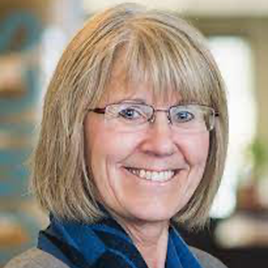 Nancy Gallini is the Executive Director of Academics without Borders and Professor Emerita in UBC’s Vancouver School of Economics (VSE). Early in her career, she joined the Economics Department at the University of Toronto and served as Department chair 2015-2020. In 2002, she was appointed Dean of the Faculty of Arts at UBC. She has served on editorial boards of Canadian, American and international economics journals, the Social Sciences and Humanities Research Council’s governing council, and the Mitacs Research Council, and is currently on the Advisory Council of the Neglected Global Disease Initiative and UBC’s Emeritus College Council. In 2017, Nancy was appointed president of the Canadian Economics Association and became a Fellow of the Canadian Economics Association in 2020.
Nancy Gallini is the Executive Director of Academics without Borders and Professor Emerita in UBC’s Vancouver School of Economics (VSE). Early in her career, she joined the Economics Department at the University of Toronto and served as Department chair 2015-2020. In 2002, she was appointed Dean of the Faculty of Arts at UBC. She has served on editorial boards of Canadian, American and international economics journals, the Social Sciences and Humanities Research Council’s governing council, and the Mitacs Research Council, and is currently on the Advisory Council of the Neglected Global Disease Initiative and UBC’s Emeritus College Council. In 2017, Nancy was appointed president of the Canadian Economics Association and became a Fellow of the Canadian Economics Association in 2020.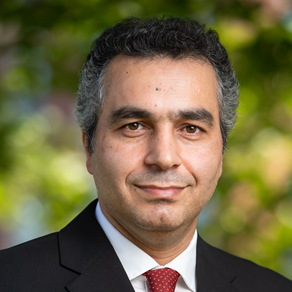 Arash Habibi Lashkari is a Canada Research Chair (CRC) in Cybersecurity at York University. As the founder and director of the Behaviour-Centric Cybersecurity Center (BCCC) and co-founder of the Cybersecurity Cartoon Award (CSCA), he is a Senior member of IEEE and an Associate Professor at the School of Information Technology at York University. Prior to this, he was an Associate Professor at the Faculty of Computer Science, University of New Brunswick (UNB), and the Research Coordinator of the Canadian Institute for Cybersecurity (CIC). He has over 28 years of teaching and research experience, spanning several international universities, and served in different communities. He has received 15 awards at international computer security competitions—including three gold awards—and was recognized as one of Canada’s Top 150 Researchers for 2017.
Arash Habibi Lashkari is a Canada Research Chair (CRC) in Cybersecurity at York University. As the founder and director of the Behaviour-Centric Cybersecurity Center (BCCC) and co-founder of the Cybersecurity Cartoon Award (CSCA), he is a Senior member of IEEE and an Associate Professor at the School of Information Technology at York University. Prior to this, he was an Associate Professor at the Faculty of Computer Science, University of New Brunswick (UNB), and the Research Coordinator of the Canadian Institute for Cybersecurity (CIC). He has over 28 years of teaching and research experience, spanning several international universities, and served in different communities. He has received 15 awards at international computer security competitions—including three gold awards—and was recognized as one of Canada’s Top 150 Researchers for 2017.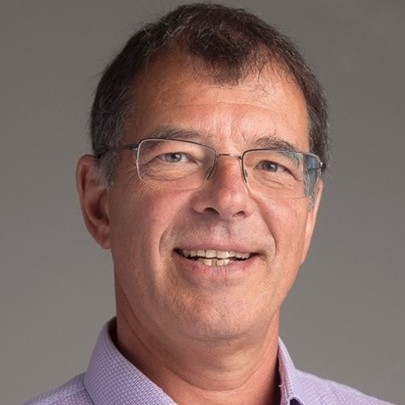 Born in Germany and educated in Germany, Ireland, and Canada, Peter Keller joined the University of Victoria in British Columbia in 1985 where he remained until 2016. From 2004 to 2014 I held the appointment as Dean of the University of Victoria’s Faculty of Social Sciences. He continues to hold a Professor Emeritus appointment at the University of Victoria. He joined Simon Fraser University in 2016 as a Professor of Geography and to take up the appointment of Vice President Academic / Provost, which he held until September of 2019. Peter has been President of the Canadian Cartographic Association, past editor of the flagship journal CARTOGRAPHICA, Chair of Canada’s National Committee to the International Cartographic Association from 1995 to 2003, and for many years was on the Board of the Canadian Institute of Geomatics.
Born in Germany and educated in Germany, Ireland, and Canada, Peter Keller joined the University of Victoria in British Columbia in 1985 where he remained until 2016. From 2004 to 2014 I held the appointment as Dean of the University of Victoria’s Faculty of Social Sciences. He continues to hold a Professor Emeritus appointment at the University of Victoria. He joined Simon Fraser University in 2016 as a Professor of Geography and to take up the appointment of Vice President Academic / Provost, which he held until September of 2019. Peter has been President of the Canadian Cartographic Association, past editor of the flagship journal CARTOGRAPHICA, Chair of Canada’s National Committee to the International Cartographic Association from 1995 to 2003, and for many years was on the Board of the Canadian Institute of Geomatics.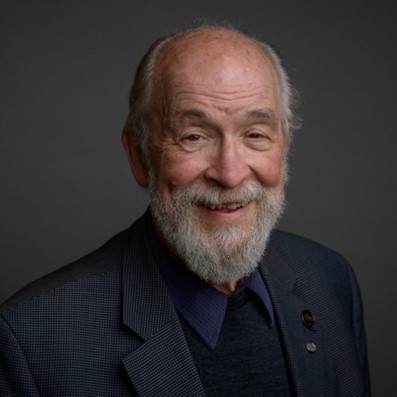 Robert Woollard (MD, CCFP, FCFP, LM) is Professor Emeritus of Family Practice at the University of British Columbia. He has extensive national and international experience in the fields of medical education, social accountability of medical schools, ecosystem approaches to health, and sustainable development. He has or is holding leadership roles in numerous medical and professional associations, including the College of Family Canadian Physicians of Canada, the Canadian Medical Association, the Association of Faculties of Medicine of Canada, and the International Association for Health Professions Education. Bob is actively involved in Nepal with a national medical school, school of public health and nursing school, and also chairs the International Advisory Board for the newly established University of Nepal, a public liberal arts university. His work in East Africa and Asia centres on matters of social accountability, primary care, rural health, and accreditation systems. He also co-chairs the Global Consensus on Social Accountability for Medical Schools and was lead organizer for the World Summit on Social Accountability that led to the Tunis Declaration.
Robert Woollard (MD, CCFP, FCFP, LM) is Professor Emeritus of Family Practice at the University of British Columbia. He has extensive national and international experience in the fields of medical education, social accountability of medical schools, ecosystem approaches to health, and sustainable development. He has or is holding leadership roles in numerous medical and professional associations, including the College of Family Canadian Physicians of Canada, the Canadian Medical Association, the Association of Faculties of Medicine of Canada, and the International Association for Health Professions Education. Bob is actively involved in Nepal with a national medical school, school of public health and nursing school, and also chairs the International Advisory Board for the newly established University of Nepal, a public liberal arts university. His work in East Africa and Asia centres on matters of social accountability, primary care, rural health, and accreditation systems. He also co-chairs the Global Consensus on Social Accountability for Medical Schools and was lead organizer for the World Summit on Social Accountability that led to the Tunis Declaration.Stories from the Front Line: Universities and Global Citizenship
This series engages with the critical question of what role public universities should occupy in international sustainable development, particularly informed by the United Nations Sustainable Development Goals (SDGs) adopted by all Member States, including Canada, in 2015. As the UN explains, the SDGs “are an urgent call for action by all countries—developed and developing—in a global partnership. They recognize that ending poverty and other deprivations must go hand-in-hand with strategies that improve health and education, reduce inequality, and spur economic growth—all while tackling climate change and working to preserve our oceans and forests.”
To better understand what is at stake with this question, conveners of this series will stage a series of conversations with people working on the front lines of university global engagement. The first three events of the series will be centred on personal stories and experiences generated from the work of three organizations with permanent, satellite, or temporary homes at UBC: the Neglected Global Diseases Initiative, the Scholars at Risk program, and Academics Without Borders. In the fourth and final event, panelists will revisit the larger question of the ethics and risks of university engagement in international partnerships and around a common cause, as well as discuss what it looks like to build capacity, what it means to develop a sense of global citizenship, as what they see as the current and future challenges and limitations of this kind of work.
Series Conveners: Nancy Gallini, Academics Without Borders; Natasha Nobell, Scholars at Risk UBC; Kishor M. Wasan, Neglected Global Diseases Initiative.

-
Unless otherwise noted, all of our lectures are free to attend and do not require registration.
Custom Lecture Fields
|